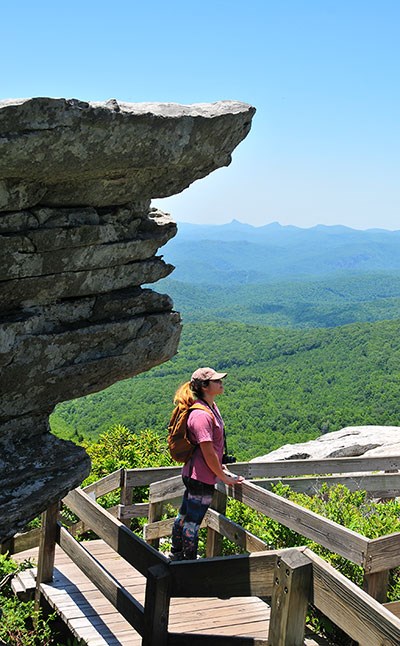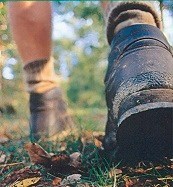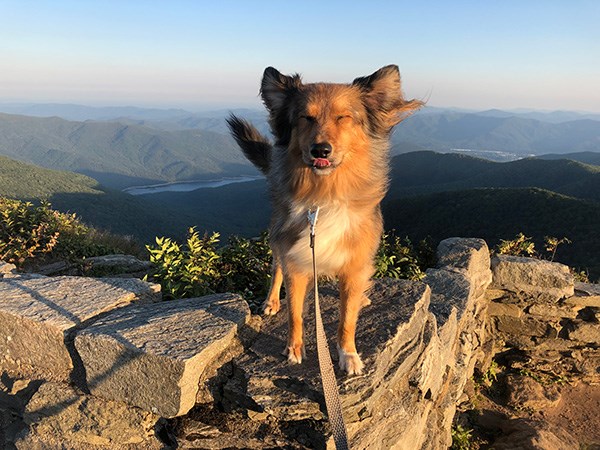
It Depends on You!Your safety depends on your own good judgement, adequate preparation, and constant attention:
The following factors often result in hiking emergencies:
Significant HazardsEncounters With BearsBlack bears are wild and their behavior is unpredictable. Although extremely rare, attacks on humans have occurred, inflicting serious injuries and death. Treat bear encounters with extreme caution! Read Bear Safety to learn how to handle bear encounters. Bear pepper spray may be carried by hikers for the strict purpose of protection against bodily harm from aggressive wildlife. It should not be applied to people, tents, packs, other equipment or surrounding area as a repellent. Bear pepper spray is a chemical formula designed specifically to deter aggressive or attacking bears. It must be commercially manufactured and labeled as "Bear Pepper Spray" and be registered with the Environmental Protection Agency and individual states. Bear spray must contain between 1% to 2% of the active ingredients capsaicin and related capsaicinoids. Venomous SnakesTwo species of venomous snakes may be encountered on parkway trails, the northern copperhead and timber rattlesnake. Be cautious where you place your hands and feet, especially around old buildings and stone fences. InsectsYellowjacket wasps build nests in the ground along trails and streams and are aggressive when disturbed. Avoid perfume, powder, and scented deodorants which may attract yellowjackets. Stings cause local swelling and can lead to severe allergic reactions in a few sensitive individuals. Such persons should carry epinephrine kits. Ticks may also be encountered on trail. Be sure to thoroughly check your skin, including your scalp, and clothing for ticks after hiking. Treat All Drinking WaterThe protozoan Giardia lamblia may be present in parkway waters. When ingested, their reproductive cysts may cause an intestinal disorder that appears weeks after your trip. Treat water with a filter capable of removing particles as small as 1 micron. Ice and Wet LeavesIn winter, trails may be covered with ice. Use crampons or other traction devices for your boots. In autumn, loose, slick leaves on the trail cause many hikers to fracture their ankles. Be certain to wear ankle supporting boots. Trees and LimbsBefore you sit down for a rest, take a moment to look up and around you for any trees or limbs that may pose a hazard. Move away from any areas that may be threatened by tree or limb fall. 
Marietta Shattelroe photo Sharing the TrailsWhile parkway trails can offer peace and tranquility, it is likely that you will encounter other visitors enjoying a variety of recreational activities.
|
Last updated: November 21, 2019
